Extensiv Order Manager Settings
3.1 min read
|This page covers the various options that can be set in Extensiv Integration Manager for your Extensiv Order Manager account.
Services
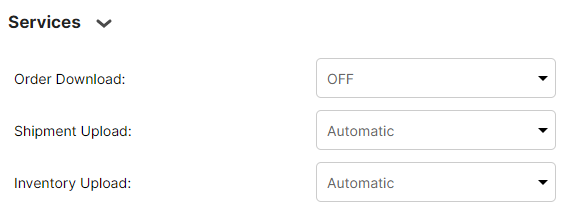
Order Manager Cart Setup
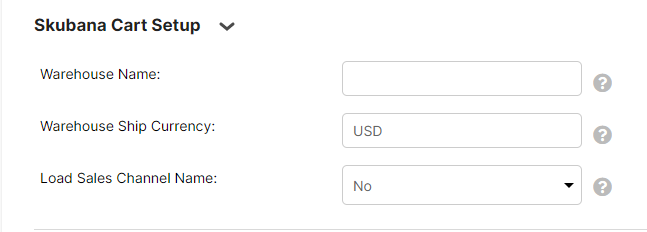
Settings |
Description |
Default |
| Warehouse Name | Only pull orders with the specified Warehouse Name. To load orders from all locations, please leave this field blank (Inventory Sync will be disabled for this cart). |
Blank |
| Warehouse Ship Currency | What currency code does the warehouse report shipping costs in? | USD |
| Load Sales Channel Name | Should integration Manager also load Sales Channel Name from Order Manager as Order Source? For example, Wayfair Sales Channel will be loaded as Order Manager-Wayfair. | No |
Order Settings
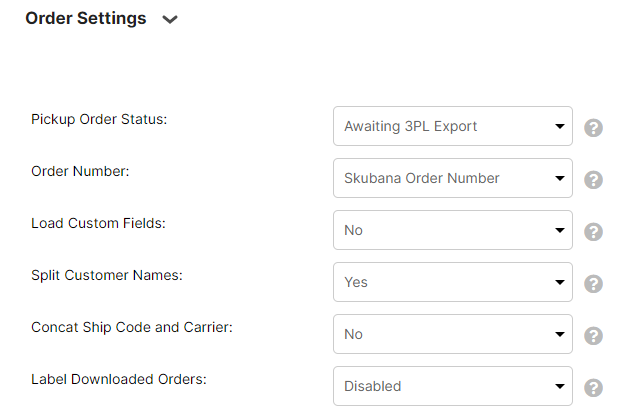
| Settings | Description | Default |
| Pickup Order Status | Only pull orders with the selected Order Status | Awaiting 3PL Export |
| Order Number | Which field should Integration Manager load as main Order Number? If the selected field is blank, Integration Manager will load Order Manager Order Number by default. | Order Manager Order Number |
| Load Custom Fields | Which field should Integration Manager load as main Order Number? If the selected field is blank, Integration Manager will load Order Manager Order Number by default. | No |
| Split Customer Names | Order Manager puts the entire customer name into a single field. This option will split it into a First and Last name. | Yes |
| Concat Ship Code and Carrier | This parameter only applies to carriers that send a Shipping Service ID to Extensiv Integration Manager. Not every carrier provides this ID. DHL is an example of a carrier that sends the Shipping Service ID. How it works: If we receive a Shipping Service ID and this setting (Concat Ship Code and Carrier) is set to Yes, Integration Manager will combine the ship code and the carrier provided by Extensiv Order Manager. |
No |
| Label Downloaded Orders | Enabling this will tell Integration Manager to add a label to orders, in Order Manager, after we have successfully downloaded them. | Disabled |
Order Line Settings
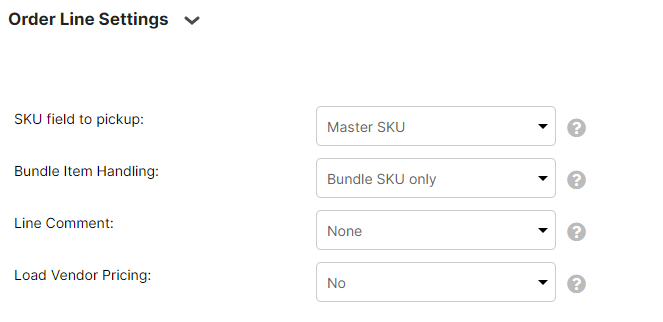
Shipping Confirmation Settings
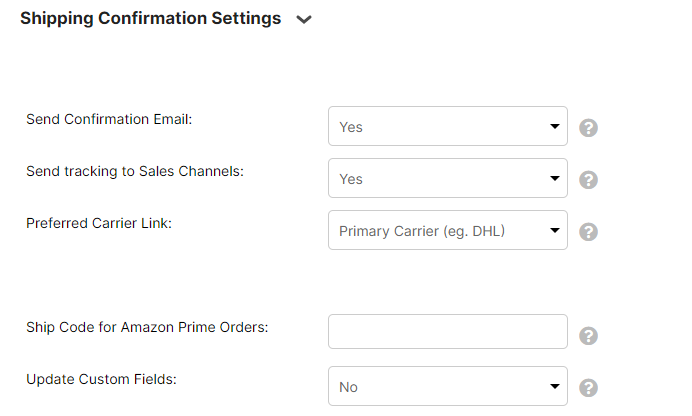
| Settings | Description | Default |
| Send Confirmation Email | Should Order Manager also send tracking to original Sales Channel when we mark an order as shipped? | Yes |
| Send tracking to Sales Channels | Should Order Manager also send tracking to original Sales Channel when we mark an order as shipped? | Yes |
| Preferred Carrier Link | In some multi-carrier scenarios Order Manager can generate tracking links for either carrier. Select your preferred tracking link when this happens. | Primary Carrier (eg. DHL) |
| Ship Code for Amazon Prime Orders | Leave blank for default. Otherwise set the Ship Code value you would like to set when orders are Amazon Seller Fulfilled Prime. | Blank |
| Update Custom Fields | Should Integration Manager update one or more custom order fields when returning tracking information? | No |
Inventory Settings

| Settings | Description | Default |
| Stock Type | When syncing inventory with Order Manager and the Warehouse, which stock level should we use? On Hand is recommended. | On Hand |
| Sync Product Details | When syncing inventory with Order Manager and the Warehouse, which stock level should we use? On Hand is recommended. | No |
General Order Options
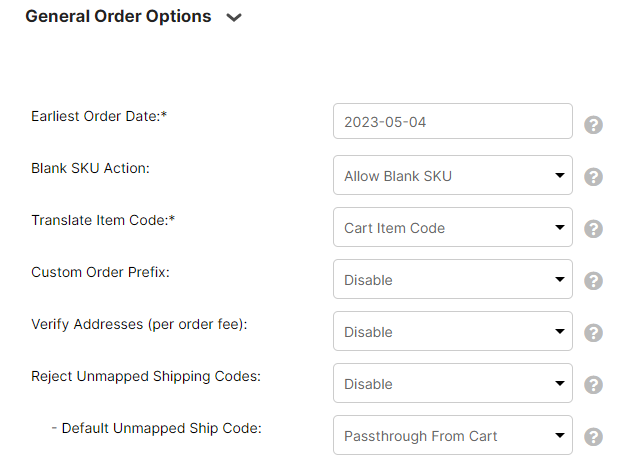
| Settings | Description | Default |
| Earliest Order Date |
Orders that were placed before this date will not be pulled even if they meet all other criteria. This prevents accidentally downloading old orders. The first time we pull orders we will attempt to pull orders back to this date as well. Setting a future date is not supported! |
7 days prior to today's date |
| Blank SKU Action | How should Integration Manager treat orders with blank line items? Allow Blank SKU: Order will be downloaded and Integration Manager will attempt to process it normally. Refuse Order: The order will be refused by Integration Manager and an alert will be raised. Skip Blank SKU: Integration Manager will filter out the blank SKUs and attempt to process remainder of the order normally. |
Allow Blank SKU |
| Translate Item Code | Should Integration Manager translate item code to alias before sending orders to WMS? For those items without selected alias, Integration Manager will use the original Item Code. If you selected Cart Item Code, Integration Manager will not perform item code translation. This will let you pass on edits to Order SKUs. The default value of "WMS Master SKU" will automatically search through item aliases and if a match is found, convert items to the WMS/OMS primary sku before sending the order to your WMS/OMS. |
Cart Item Code |
| Custom Order Prefix | Should Integration Manager add a prefix to all orders downloaded from this cart? | Disable |
| Verify Addresses (per order fee) | Correct/Standardize addresses using CASS Certification (View Rates) | Disable |
| Reject Unmapped Shipping Codes | This will hold back orders with unknown shipping codes until they have been mapped for the given WMS. | Disable |
| Default Unmapped Ship Code | If ship code from cart is not mapped, What value should Integration Manager pass through to the WMS/backend. | Passthrough from Cart |
General Inventory Options
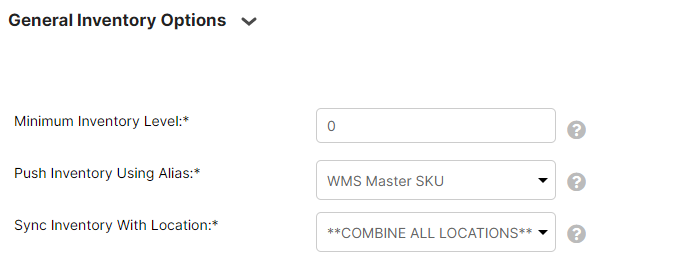
| Settings | Description | Default |
| Minimum Inventory Level |
In order to prevent shopping carts from overselling, item that has less than the Minimum Inventory Level will be set to quantity Zero. Note: This is only available to carts that utilize Available Quantity during inventory sync. |
0 |
| Push Inventory Using Alias | Product aliases are loaded from your WMS. If your WMS does not support alias sync, you can add them manually in Integration Manager. If your shopping cart is using product aliases instead of (Master) SKU, please select alias name. Products that do not contain the chosen alias will be ignored during inventory sync. |
WMS Master SKU |
| Sync Inventory with Location | Sync shopping cart inventory with selected warehouse location. | Combine All Locations |
